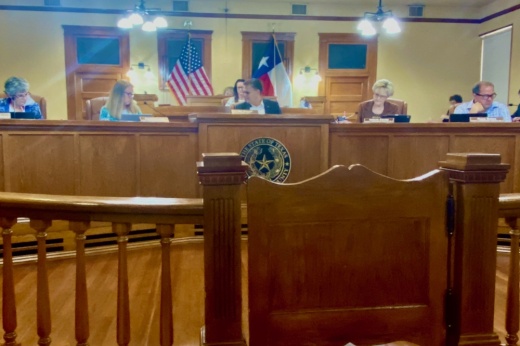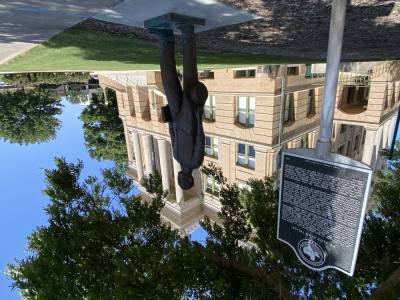“The only reason I can't support this is because I feel like we're telling LCRA what to do, and it's not our lane, and we as a court have made a commitment to stay out of other people's lanes,” Judge Bill Gravell said.
Members of the Highland Lakes Firm Customer Cooperative—a co-op formed in 2012 in response to emergency orders by the LCRA—and Central Texas Water Coalition—a nonprofit that advocates for policies that preserve Highland Lakes—were present to speak against and in favor of the resolution.
“We recognize this is a severe drought, [but] we just feel like the [existing] water management plan needs to run its course so that we can see what works and what doesn't work,” said Earl Foster, chair of the Highland Lakes Firm Customer Cooperative, who was against the resolution.
According to Foster, Highland Lakes Firm Water Customer Cooperative, which comprises Cedar Park, Pflugerville, Burnet, Marble Falls, Leander, Lago Vista, Water District 17, West Travis County PUA, Hurst Creek MUD and Lakeway MUD, will implement an LCRA drought contingency plan Aug. 10, instead of in January 2023, because of the severe drought conditions in Williamson County. He said this would protect the drinking water of customers and prevent the Highland lakes from becoming dangerously drained even without a resolution.
Jo Karr Tedder, president of Central Texas Water Coalition who spoke in favor of the resolution, said that there were over 50 water supply companies in the region that were not represented by Highland Lakes Firm Customer Cooperative who were experiencing the effects of severe drought.
According to the Central Texas Water Coalition, a nonprofit that advocates for evidence-based best practices for managing the Highland Lakes, by 2030, the region could add up to 1 million residents requiring 40 billion gallons of additional water.
After the court debated what their role should be in the LCRA’s water management duties, no one seconded the motion, and the measure was effectively killed.






